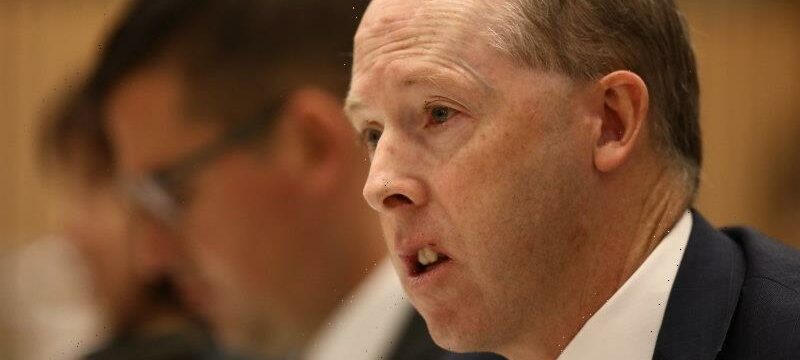The head of the construction watchdog has warned lawlessness in the sector would thrive without a strong national regulator and suggested greater penalties could help curb persistent union breaches on worksites.
Australian Building and Construction Commissioner Stephen McBurney, who has made an enemy of the construction union while leading the statutory authority, said members of the building industry had told the oversight body offending would “go unchecked” if it were disbanded.
ABCC commissioner Stephen McBurney says lawlessness could thrive if the construction industry is left unregulated.Credit:Dominic Lorrimer
Labor has promised to scrap both the ABCC and the Registered Organisations Commission (ROC) if it wins government, with Opposition Leader Anthony Albanese previously calling them “discredited and politicised”. The ABCC was created under former prime minister John Howard in 2005, scrapped under Julia Gillard in 2012, then revived under Tony Abbott in 2016.
“This industry needs a regulator, in whatever shape or form it is. Unregulated, we will see a continuation of unlawful conduct at the level we’ve seen over a sustained period,” Mr McBurney said in an interview with The Sydney Morning Herald and The Age. He said it was “correct” that lawlessness would flourish if the commission were to cease.
Mr McBurney said 87 of the 106 court cases resolved in the past five years had been against the Construction, Forestry, Maritime, Mining and Energy Union, 79 of which were decided in the watchdog’s favour. These resulted in $14.7 million in fines for the union and its officials.
But the union’s construction division national secretary, Dave Noonan, said Mr McBurney was “clearly … making a political intervention in the run-up to the election” and called for the commission to be abolished.
“The ABCC’s there to protect corrupt employers from being held to account by a strong union, that’s why John Howard set it up,” Mr Noonan said.
Mr McBurney said, as a statutory officer, he was bound to discharge his role “apolitically and impartially” and the lifespan of the body was beyond his control, however, it was vital the industry be regulated because it had some “underlying problems with observance of the law”.
He highlighted breaches of right-of-entry provisions – a union official’s right to step onsite – as a “clear flashpoint”, and one of “least resistance” due to the size of the penalties.
“If a government saw the need to increase penalties for right-of-entry, I would anticipate a … reduction [in offending],” Mr McBurney said.
But Mr Noonan said the commission tried to stop workers receiving service from their union and resorted to “massive litigation” around right-of-entry, “which is really just about workers getting their wages, and health and safety looked after by union officials”.
Mr McBurney said the watchdog ran wage and entitlement cases for workers, pointing to a successful age-discrimination prosecution and the rectification of $9.5 million in underpayments to subcontractors as evidence of its achievements.
Former Labor leader Bill Shorten and industrial relations spokesman Tony Burke last month seized on a decision by the union watchdog, the ROC, to drop a five-year investigation into the Australian Workers’ Union after finding there wasn’t enough evidence to prosecute its officials, with Mr Burke spruiking Labor’s plan to “defund” the agency.
Former employment minister Eric Abetz, who was involved in reintroducing the ABCC, said to remove it “would lead to an explosion of lawlessness” and Labor’s advocacy for its removal showed “how beholden Labor will be to this lawless union”.
The Morning Edition newsletter is our guide to the day’s most important and interesting stories, analysis and insights. Sign up here.
Most Viewed in Politics
From our partners
Source: Read Full Article

